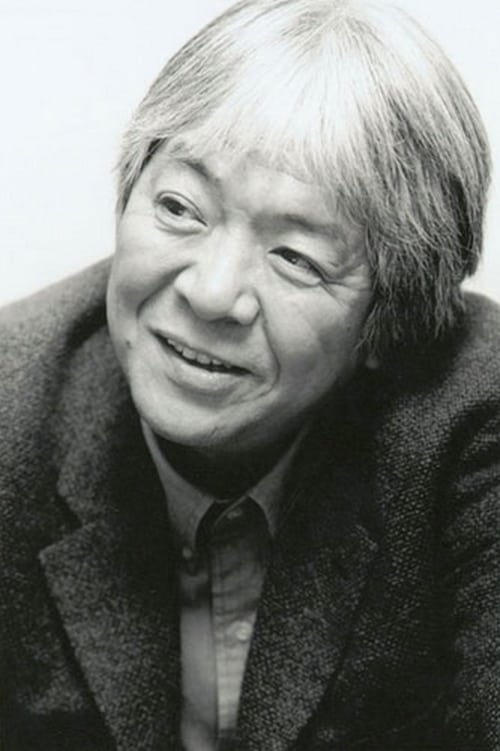Jun Ichikawa
Birth : 1948-11-25, Tokyo, Japan
Death : 2008-09-19
History
Jun Ichikawa was a Japanese film director and screenwriter. He was first a director of television commercials before adding filmmaking to his creative activities. His most famous film outside of Japan was Tony Takitani, an adaptation of a short story by Haruki Murakami. He died of a cerebral hemorrhage after suddenly collapsing at a restaurant, shortly before his latest film, Buy a Suit, was to premier at the Tokyo International Film Festival.

Editor
Taking his camera and microphone to the heart of the megalopolis of Japan, the director combines scenes of the Tokyo with on-screen commentary and questions to articulate his vision of a city or to ask questions about it in spite of an audience which may think the questions are already answered and need not be asked or commented on.

Cinematography
Taking his camera and microphone to the heart of the megalopolis of Japan, the director combines scenes of the Tokyo with on-screen commentary and questions to articulate his vision of a city or to ask questions about it in spite of an audience which may think the questions are already answered and need not be asked or commented on.

Editor
Yuki travels to Tokyo in search of her missing brother, and searches the streets with an address on a postcard as her only lead.

Screenplay
Yuki travels to Tokyo in search of her missing brother, and searches the streets with an address on a postcard as her only lead.

Cinematography
Yuki travels to Tokyo in search of her missing brother, and searches the streets with an address on a postcard as her only lead.

Screenplay
Taking his camera and microphone to the heart of the megalopolis of Japan, the director combines scenes of the Tokyo with on-screen commentary and questions to articulate his vision of a city or to ask questions about it in spite of an audience which may think the questions are already answered and need not be asked or commented on.

Director
Taking his camera and microphone to the heart of the megalopolis of Japan, the director combines scenes of the Tokyo with on-screen commentary and questions to articulate his vision of a city or to ask questions about it in spite of an audience which may think the questions are already answered and need not be asked or commented on.

Director
Yuki travels to Tokyo in search of her missing brother, and searches the streets with an address on a postcard as her only lead.

Director
Juri, an elementary school girl, loses sight of her true self while acting out a false self to play along with her friends. Kanako, a classmate who used to be the popular girl but has been bullied lately, tells Juri that the girl she is now is not her true self, and Juri sympathizes.

Script

Director

Screenplay
Mortality and death seen through the eyes of a lonely student who has an morbid and albeit naive fascination with death. His teacher, Koichi is also grappling with the issue of mortality as he deals with the impending death of his ailing father, who has decided to spend his final days in the family home. As the story progresses, Koichi finds unexpected solace from his grief by letting his troubled student visit and meet with his father in the hopes that he will understand the meaning of life and death.

Director
Mortality and death seen through the eyes of a lonely student who has an morbid and albeit naive fascination with death. His teacher, Koichi is also grappling with the issue of mortality as he deals with the impending death of his ailing father, who has decided to spend his final days in the family home. As the story progresses, Koichi finds unexpected solace from his grief by letting his troubled student visit and meet with his father in the hopes that he will understand the meaning of life and death.
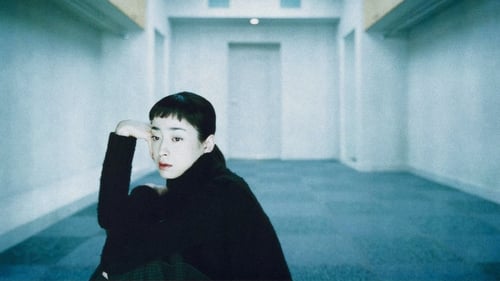
Screenplay
Tony Takitani seems to find emotions illogical and immature. When he falls for Eiko, his life changes. But Eiko has an all-consuming obsession: designer clothes.

Director
Tony Takitani seems to find emotions illogical and immature. When he falls for Eiko, his life changes. But Eiko has an all-consuming obsession: designer clothes.

Director
Film about Sakamoto Ryōma. The focus is on Oryo, the maid who became Ryoma’s wife and lived with him for one year before his death.
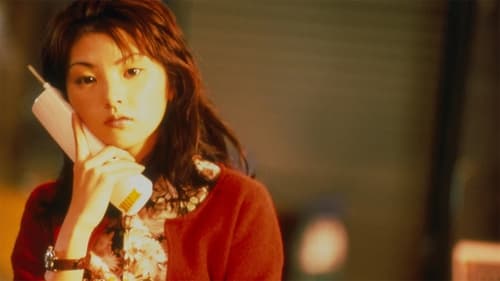
Director
Eriko – lonely, aimless and self-absorbed – falls for Tamura. Despite knowing that he is waiting for his girlfriend to return from overseas, she requests to enter into a relationship with him for just one year.

Screenplay
Eriko – lonely, aimless and self-absorbed – falls for Tamura. Despite knowing that he is waiting for his girlfriend to return from overseas, she requests to enter into a relationship with him for just one year.

Original Concept
Director Jun Ichikawa spins this affectionate portrait of the people who populate Shimokitazawa, a bohemian corner of Tokyo filled with small theater companies and smoky coffeehouses.

Director
Director Jun Ichikawa spins this affectionate portrait of the people who populate Shimokitazawa, a bohemian corner of Tokyo filled with small theater companies and smoky coffeehouses.
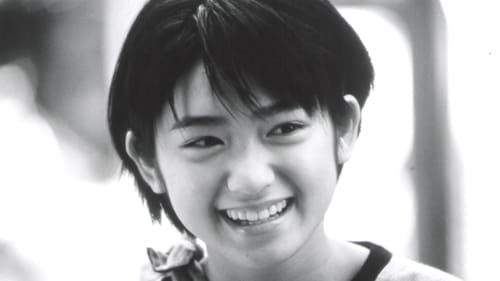
Director
Young Wakana is the daughter of a husband and wife comedy act, who have worked together for 20 years without any big success. Wakana’s parents quarrel constantly, and her mother often threatens to leave. When one day her father disappears, Wakana sets out to find him.

Screenplay
A film based on two short stories by Shiina Makoto. Tadon is the story of a cab-driver who spends his days listening to his passengers' conversations. Chikuwa is about a writer who faces a creativity bottleneck.

Director
A film based on two short stories by Shiina Makoto. Tadon is the story of a cab-driver who spends his days listening to his passengers' conversations. Chikuwa is about a writer who faces a creativity bottleneck.
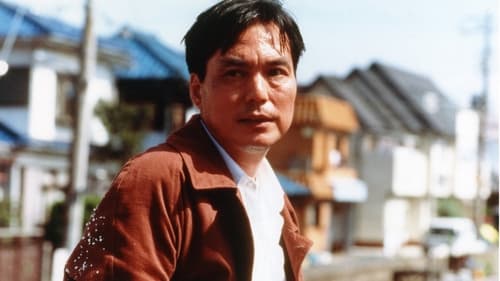
Original Story
Hamanaka Koichi returns to his wife Hisako and family in a sadder, run-down section of eastern Tokyo after having run away from home years before. He gives no explanation of his absence and his family asks no questions. It is only through the questions that a young writer named Asakura, who is secretly in love with Hisako, poses of local shop owners, that we learn that Hamanaka's disappearance may be related to the fact that the woman everyone thought he would marry, Tami - who runs the cafe across the street from the Hamanaka electric store - had ended up tying the knot with another man who died soon thereafter.

Director
Hamanaka Koichi returns to his wife Hisako and family in a sadder, run-down section of eastern Tokyo after having run away from home years before. He gives no explanation of his absence and his family asks no questions. It is only through the questions that a young writer named Asakura, who is secretly in love with Hisako, poses of local shop owners, that we learn that Hamanaka's disappearance may be related to the fact that the woman everyone thought he would marry, Tami - who runs the cafe across the street from the Hamanaka electric store - had ended up tying the knot with another man who died soon thereafter.
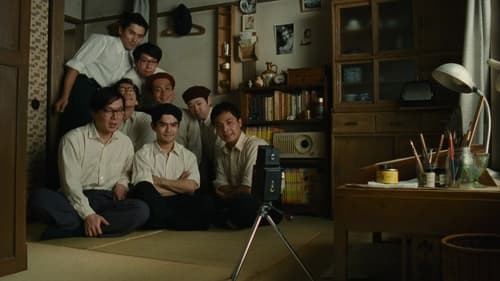
Writer
There still stands a famous apartment building where such prominent manga artists as Tezuka Osamu, Shotaro Ishinomori and Fujio Akatsuka once lived, worked, and shared experiences.

Director
There still stands a famous apartment building where such prominent manga artists as Tezuka Osamu, Shotaro Ishinomori and Fujio Akatsuka once lived, worked, and shared experiences.
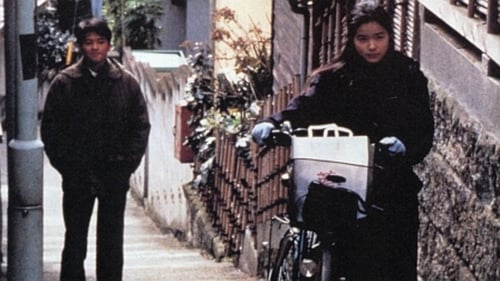
Director
Living in an old Tokyo district, Kenichi works at a second-hand bookshop to support his sister, Yoko, a high school student. When Yoko graduates, she starts work at a photo shop. By the time, Kenichi's girlfriend has decided to marry someone else as she is tired of waiting for him. When Yoko starts dating Kenichi's best friend, Makoto , he is strangely resentful, but when Makoto is involved in a fatal accident, brother and sister resume their routine life.

Screenplay
Based on the story of the same name by Shizuka Ijûin. Ran as a double feature with Chibusa (1993).

Director
Based on the story of the same name by Shizuka Ijûin. Ran as a double feature with Chibusa (1993).

Writer
Filmed in a documentary style six patients in six wards of different ages and circumstances await death at a hospital in Japan. The sterile and dismal environment is contrasted against the emotional being of the patients, their visitors and relatives and the outside world, which they will never again survey.

Director
Filmed in a documentary style six patients in six wards of different ages and circumstances await death at a hospital in Japan. The sterile and dismal environment is contrasted against the emotional being of the patients, their visitors and relatives and the outside world, which they will never again survey.

Director
Kin chan no Cinema Jack is an anthology film starring Yuen Biao and produced by Jackie Chan

Screenplay
An anthology exploring the meaning of the Japanese greeting goaisatsu.

Director
An anthology exploring the meaning of the Japanese greeting goaisatsu.

Editor
A story after 100 years from now. A man, Komori who could not receive education and lived by the flow of life came to attend a funeral in a small town that is remote. So, by chance I meet Uchida who is a childhood friend. He is growing up as an intelligent man with a realistic ambition of "conquering the universe."

Producer
A story after 100 years from now. A man, Komori who could not receive education and lived by the flow of life came to attend a funeral in a small town that is remote. So, by chance I meet Uchida who is a childhood friend. He is growing up as an intelligent man with a realistic ambition of "conquering the universe."

Screenplay
Tsugumi, who lives in a small seaside town, has been in delicate health from birth. Her parents spoiled her and she is rough and selfish. However, a few people are attracted by her beauty and unique character.

Director
Tsugumi, who lives in a small seaside town, has been in delicate health from birth. Her parents spoiled her and she is rough and selfish. However, a few people are attracted by her beauty and unique character.
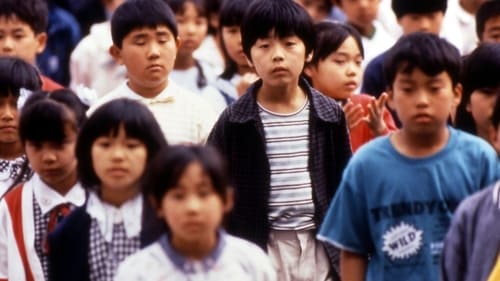
Director
Via the New York Times: "The solemn, intent faces of the Japanese schoolboys playing video games in Jun Ichikawa's "No Life King" bespeak a new type of modern horror. Addicted to their favorite new game (from which the film takes its title), these children have become seriously estranged from the real world. The film's constant emphasis is on the ways in which this has been allowed to happen, and on how emblematic it is of larger attitudes in a technological society. When a young boy trying to converse with his mother must compete with a home computer for her attention, it's not hard to see why the boy has retreated into his own computer-dominated world."

Director
A hard-working section chief, fast approaching retirement and beset by stress from all directions, joins a jazz band and reignites his youthful passion for the music, giving him a chance to set things right in his life.

Screenplay
A hard-working section chief, fast approaching retirement and beset by stress from all directions, joins a jazz band and reignites his youthful passion for the music, giving him a chance to set things right in his life.
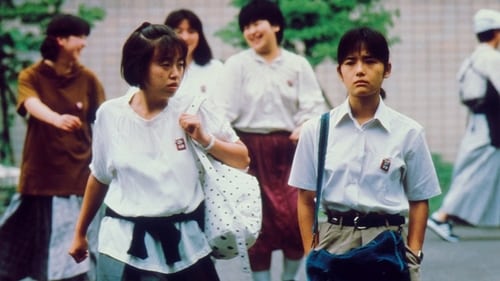
Director
Mugiko, an 18-year-old attempts to escape her unhappiness with village life by going to Tokyo to live and work in the geisha house run by her aunt. The daughter of a once great geisha, Mugiko is entitled by blood to train in the geishas ancient art of classical Japanese song and dance.

Screenplay
Music video telling the story of idol Yuki Saito who has fled Japan and headed for Hong Kong...

Director
Music video telling the story of idol Yuki Saito who has fled Japan and headed for Hong Kong...
